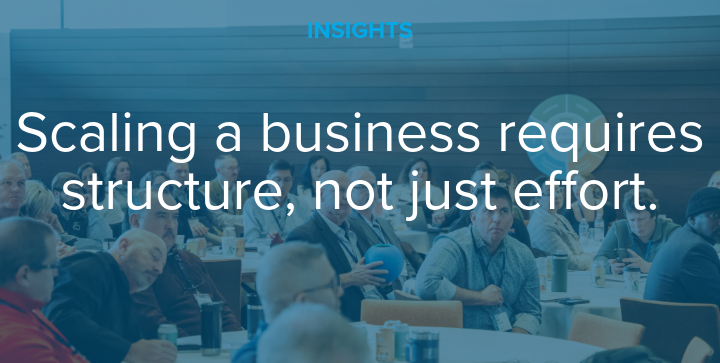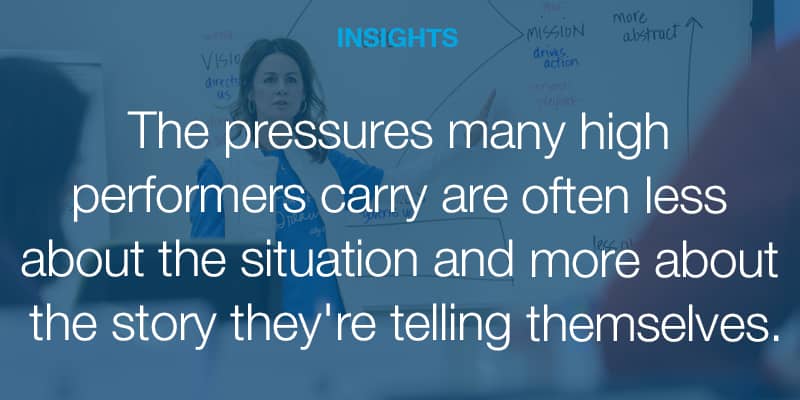Mike Mathile is an entrepreneur, family business executive, a private investor, husband, and father. He’s also an advisory and board member for multiple companies.
While the business community may know him in such roles (Mike is Chairman of CYMI Holdings), many are unaware of the experience that’s greatly shaped how he leads today: his professional baseball past with the Montreal Expos and Cincinnati Reds.
“Everything in my life was geared towards making it to the big leagues,” shares Mike.
Big League Dreams
After six and a half years in the minor leagues as a pitcher for the Expos and Cincinnati Reds, Mike suffered several arm injuries. Eventually, the pain and injuries led to the end of his professional career in 1996.
At the time, Mike saw his professional baseball career as a failure.
“I was able to make it to the 40-man roster, but not to the 25-man, Big League roster. Plan A had always been: I was going to play until I was 35 and retire as a Hall of Fame pitcher,” he explains. “You don’t really have a Plan B—because then you’re not very confident in Plan A.”
Partially because he saw it as a failure, Mike eventually learned to move on from the experience, rarely sharing stories from his time playing professional baseball with peers, friends, or family. “I was embarrassed, because I told everybody, ‘I’m going to make it and I’m going to retire as a Hall of Famer.’ And I didn’t achieve that. At the time, I saw that as a waste of time,” he says. “It was over, and I was ready to move on.”
An Entrepreneurial Journey
During the four years after he retired from baseball, he began to lay the foundation for his next journey, a process that included earning his MBA and buying a business.
“It wasn’t until about two or three years into owning my own business where I started realizing that a lot of the skills that I had learned in dealing with people in a business setting came from me sharing a locker room with 25 other baseball players,” says Mike.
“I saw that I was actually dealing with people a lot better than I thought I would, and that’s because I understood them better.”
Later validated by an EQ (or emotional intelligence) evaluation from a leadership coach, Mike uncovered that he had an exceptionally high degree of emotional intelligence.
That’s when his perspective and appreciation for his baseball career started to shift. “What looked like a failure previously, ended up being this amazing, positive experience in my life that I didn’t necessarily expect. The thought shift for me was: ‘Without those six and a half years of professional baseball, I wouldn’t even be close to where I’m at today—being a business owner, and having some success there.’”
With a different perspective about his time playing professional baseball, there have been many gifts coming from what Mike once viewed as a failure:
1. Failures that fostered grit
“Failure humbles you,” says Mike. “It really does humble you. When, as a pitcher, you throw a slider with the bases loaded and the guy hits it over the wall—that’s pretty humbling. That’s an immediate, embarrassing failure,” says Mike.
It was a training ground for having the resolve to move past mistakes quickly, one that developed Mike’s ability to manage his emotions and reaction to failures in general. “I’ve been in front of thousands of people who’ve seen me give up a home run, so that [mistake] I make today probably isn’t that bad, in comparison,” he says.
“It’s important to have failures, and even in business, I’ve had a ton of failures. I don’t linger in failures, but I love to be in an environment which creates learning opportunities. Failures really do teach you resiliency  ,” says Mike.
,” says Mike.
2. An increase in emotional intelligence
“The training room, that is, the locker room and the dugout, was incredibly valuable to learn how to deal with people,” shares Mike. “You couldn’t buy that anywhere. You had to experience it. I’ve realized that six and a half years of pro ball developed my EQ to such a great extent that I could start relying on that to help drive other people and drive the business.”
Mike sees emotional intelligence show up in his philosophy of people development, and he also sees it in these areas:
- Understanding yourself and how you operate—and what that means for managing yourself to equip others;
- Having the ability to be clear and articulate your vision, thoughts, and ideas;
- Finding optimal relationships where you can empower those you’re leading and working alongside.
“I love the opportunity of setting clear direction and empowering really talented people to go do what they need to do,” he says. “You can empower a lot of people and people won’t do anything with it. But being able to pick the right people to empower is really where I see it show up the most today for me.”
Knowing yourself and what your tendencies are—and where that can cause challenges for you and for the business—is critical as a leader.
“I believe the highest level of EQ, is understanding yourself, and how you work with certain people. When you understand yourself well enough, you can listen and give clear direction to empower those around you.” ![]()
Many times people walk into Mike’s office and are immediately surprised by how clean his desk appears. “Is this your office? There’s nothing on your desk!” they say.
Mikes’ reply: “It’s clean because I know that if it’s on my desk, it’s not getting done.”
Mike knows enough about himself to surround himself with people he trusts so that he can fully delegate to them. “I’m clear enough with them that they know what it is that should get done. If it’s on my desk, it’s not getting done, [which encourages me to delegate and trust those around me].”
When he sees too much on his desk, it’s a signal to himself that he’s not trusting people enough. “It’s a trigger for me. EQ comes into play because you truly understand yourself. I can leave my ego at the door, and I can empower somebody else to do the work.”
3. The awareness to live more consciously
Another gift from his time playing baseball: a lesson in enjoying the journey. “The experience was so powerful in how you had to manage through wins, losses, other teammates, coaches that didn’t believe in you, having good coaches, having bad coaches, having contract disputes, and more. All of those situations taught me a tremendous amount. I wouldn’t trade the experience, but my life wouldn’t be near as fulfilled today if I would have succeeded in my original dream.”
Mike says if he could go back in time and give himself locker room advice, he’d tell himself, “Don’t take it so personal. Don’t take this so personal.”
“Enjoy the game, because you might not play this much longer—so go out and enjoy it.”
It’s a lesson just as applicable to life and working in business today. “Stop taking it so serious. Stop taking it so personal, and good things will happen, and it’s going to be what it’s going to be. It’s similar to what I tell myself today in business,” he says: “‘Get over yourself. Don’t take it so personal. Let’s enjoy it and have fun. We’re about the journey, it’s not about the result,” he says.
“One day you might not be able to do this, so you better enjoy it.”
Lead Authentically & Consciously
At the Understanding Your Impact on Culture workshop, you’ll have the opportunity to raise your consciousness around how—and why—you act and react the way you do to challenges, setbacks, and opportunities. During the workshop, you’ll also learn ways to be more intentional about adding to your team and organization’s culture.





